#dinah the red tent
Explore tagged Tumblr posts
Text

I prayed to God for a son who would be a leader, a prince among his people, and God granted my prayer. But I never knew that it would mean losing him." - Dinah, Chapter 7
"Education was a crucial aspect of the upbringing of princes in ancient Egypt, as it was believed that a well-educated prince would make a better ruler. The education of princes was comprehensive and rigorous, with a focus on developing their intellectual and physical capacities." - Toby Wilkinson, "The Rise and Fall of Ancient Egypt"
In ancient Egypt, education for princes was highly valued and was considered an essential aspect of their upbringing. The education of princes was designed to prepare them for their future roles as rulers and was focused on developing their intellectual, physical, and moral capacities.
The education of princes was conducted in specialized schools, known as the "House of Life" or "Per Ankh." These schools were often located within temple complexes, and their curriculum included a wide range of subjects such as writing, reading, mathematics, astronomy, medicine, religion, history, music, and sports.
Princes were taught by highly trained scribes and priests who were experts in their respective fields. The education system was highly structured and rigorous, and the curriculum was designed to develop critical thinking and problem-solving skills.
The education of princes also included training in military and administrative skills. Princes were taught to ride horses, hunt, and fight with weapons. They were also taught the basics of administration, such as how to manage finances and handle diplomatic affairs.
"The education of princes in ancient Egypt was designed to prepare them for the complex role of ruler, which required not only knowledge of administrative and military matters, but also a deep understanding of religion and morality." - John Romer, "Ancient Lives: The Story of the Pharaohs' Tombmakers"
#perioddramaedit#edit#the red tent#theredtentedit#dinah the red tent#anita diamant#rebecca ferguson#rfergusonedit#remose#history edit#historyedit#history#egyptian history#egypt#ancient egypt#ancient history#dinah#historical women#historical figures#oholibamah#the red tent film#ancient civilizations#egyptian#dinah the Bible#women in bible#women of bible#litedit#historical facts#perioddramacentral#perioddramasource
32 notes
·
View notes
Text










The Red Tent, Dinah's first and last loves: requested by @usernamesuggestionsarefunny
1. Meet-cute 2. A gift 3. First kiss 4. Marriage day 5. Bonus: Flowers
45 notes
·
View notes
Text

Rebecca Ferguson as Dinah | The Red Tent | 2014
46 notes
·
View notes
Note
How do you think Tassita and Belle reacted when Dinah and Greaseball started dating? 👀
OOOOO this is fun
So I think at least one of them was probably with Dinah when she met Greaseball and they kind of clocked her as being abrasive and egotistical right off the bat
But as things go, Dinah was infatuated and so was Greaseball and that’s really all it takes
At first I think they’re tentatively happy for her, like yay baby’s first lesbian relationship (that’s more my personal headcanon that GB is probably Dinah’s first girlfriend because she’s pretty recently figured out she’s a lesbian)
They get frustrated because everything they view as red flags is something that Dinah admires about Greaseball, so it’s really kind of hard to convince her the relationship maybe isn’t a great idea
Literally “She’s kind of abrasive” “She speaks her mind!!” “Literally all of her time is dedicated to racing” “She has something she’s passionate about!” “She has anger issues!” “No she just has really strong emotions!”
It’s just that back and forth for a loooong time before they just leave it alone
They grow to like GB okay, but as soon as they have their first real fight, they’re right back to the “Dump Her” attitude
Dinah’s like their little sister and they’re hella protective of her
They only tolerate Greaseball when she’s being nice, and they’ll still make fun of her a lot, it’s in their job descriptions as Dinah’s besties
Post canon I think they let her in to the family a little more once it’s clear she’s made changes for the better though
sorry if this is kinda bad, i’ve started writing research papers again and I think my writing tone has gotten weird again lol
#starlight express london 2024#starlight express#dinah the dining car#greaseball the diesel#stex#greasedinah#dinah starlight express#rory rambles! 💕#greaseball and dinah#dinah x greaseball#stex belle#stex tassita
23 notes
·
View notes
Text
we discussed the rape of dinah during torah study yesterday and it’s just been really been making me want to read the red tent
9 notes
·
View notes
Text
LINK: Helpless
Summary: Wally had it good. He was the Track Star of his high school, people fawning over him, anyone he wanted.
The only problem was that now, in his last few years, he'd missed a couple things. Things being credits.
Now he's stuck in theater class. It's not all bad, how could it be when his first day included falling into the arms of the cutest boy he'd ever seen?
Theater Kid Dick x Track Star Wally AU (co written with @daisha-mochizuki)
“West, my office, now. ”
Wally looked up from his track shoes that he was tying to his feet only to find his coach very pissed off and storming off to his office with a bunch of folders in his hands. He cringed as the door to the office slammed shut, and he sighed as he stood. As he walked, he kept his head tilted downward to try and avert himself from his peers’ gazes, as they either gave him concerned looks or glared at him.
He stood in front of the desk, fingers tapping against his upper thigh anxiously.
The coach sat, folding his hands together and leaning his head on them before looking up.
���Why are you here, West?”
Wally rocked on his tiptoes. “I-uh, I was hoping you could tell me that, sir.”
The coach watched him with an unimpressed look, spreading out the papers from the folders out in front of him. Even from upside down, Wally could see they were charts and grades, as well as tables. He’d always tried to keep his grades afloat because otherwise he wouldn’t be allowed to play.
“Well, according to this, you’re missing your visual and performing arts credits by a huge amount. You have a bit before you graduate, but you’ll only make it out of this school if you start gathering them now.”
Wally sighed to himself.
This was going to be a long conversation, wasn’t it?
“Thank you, sir, I-”
“I’ve already enrolled you into a class myself,” the coach interrupted Wally, sliding a new schedule sheet across his desk over to Wally, who was standing there stiffly. “You’ll start your new class tomorrow. Rest up. We need you for this team.”
He was shooed out of the office with only a schedule in hand, staring at it without reading the words. The world felt numb as he trudged back into the locker room, the world blurring out his teammates. He re-dressed slowly, before tying his black combat boots and going back outside, unwilling to face his teammates.
Instead of sitting out on the bleachers to watch the practice, he went to sit under a tree overlooking the field.
Sighing, he unfolded the schedule to look for the highlighted class signifying his new one.
Theater - seventh period. Teacher - Dinah Lance.
Theater? Well, his parents had always told him he was a drama queen…
He walked into the place marked on his schedule, his boots creaking the old wood beneath his feet as he walked along the stage, trying to find someone, anyone, to signal that he was indeed in the right place.
“Hello…?” he called out tentatively, carefully trying to pull back the deep red velvet curtains that were drawn shut. He screeched and nearly toppled over as a hand was thrust through the curtains and grabbed him by the collar of his T-shirt to yank him back into the curtain-abyss.
Wally held up his hands, taekwondo style, and quickly looked around for whoever had dragged him through. He was met, however, with the searing stage lights being flipped on and shone directly in his face.
“State the reason for your presence.” A low voice growled.
“Um, this is my seventh period now?” He squeaked, shielding his eyes. “What the hell is this, a cult?”
“Close enough!” A different voice chirped, moving the lights from his eyes and allowing him to look around.
In front of him, a tall, blond woman smiled at him, extending a hand. “Forgive the theatrics, my students like to have a little fun with the transfers. I’m Dinah Lance, I'll be your teacher for the rest of the year.”
“Wally West. Nice to meet you,” Wally murmured weakly as he took his new teacher’s hand, shaking it gingerly.
“Wally, then? Artemis here will give you the tour.”
A blonde girl stepped forward, having come from the lights. “Hey. I’m Artemis, and damn, we got you so good!”
Wally grumbled to himself, glowering at the girl, apparently Artemis. He crossed his arms over his chest and turned his face away when the girl held out a hand for him. Artemis rolled her eyes and grabbed Wally, dragging him along despite his annoyed facade. Wally yelped, stumbling.
“You should get used to it, Baywatch, that’s how we work around here.”
“Baywatch?” Wally looked down at himself, catching a glimpse of his face in his reflection. His black beanie slipped up, allowing for his bangs to float into his face.
“I feel like you watch shitty daytime TV,” Artemis shrugged.
He scowled, following her as she pointed out several different areas and teams with specific names. He wandered after Artemis, his eyes flitting around as he tried to observe and intake all of the information he was quickly learning.
Wally had always been a trouble magnet, however, and managed to find it in the most random of ways.
Today, it took the form of a clump of loose wires strewn across the backstage. Artemis stepped over it easily and he moved to do the same, but followed her hand to where she was pointing at the set-builders. A boy was there, outlining a piece for an outdoor scene, and right as he turned, the other boy misstepped, shutting his eyes as his whole body was to inevitably hit the floor face first.
Instead, he landed with a soft whoomph against a warm body. He looked up, blinking up as the brightly shining light above them led him to the most beautiful blue eyes he’d ever seen.
It was a normal day, alright? Playing knight in shining armor for boys in too much black was not something on Dick’s agenda.
It was the props and stage day and everyone was helping out. He was humming along to one of the broadway soundtracks playing from a nearby speaker on low, and losing himself in the swoops and swerves of the lines, thick strokes of dark color being left behind in the wake of his brush.
He had missed the customary ‘scare the ever-living shit out of the new student’ ritual, but trusted that one of his friends had recorded it. He could hear Artemis’s voice droning on about the theater and turned to wave her over.
The student following her met his gaze, flashing Dick a glimpse of striking green, before the person tripped and ended up promptly falling flat on their face.
Well, they would have, if DIck hadn’t dropped his brush the moment he saw the kid’s foot catch in the wire and bolted forward.
He caught the kid with ease, waiting until they turned to look at him, dark eyeliner making the disoriented green eyes even wider.
On top of being the most dramatic person to grace the school’s theater class, Dick was also known for being a bit of a flirt, and upon seeing the situation, his brain to mouth filter broke completely.
“Well, new kid, looks like you’re already falling for me.”
Wally gaped at him, wondering how the extremely attractive boy who was cradling him in his arms just shot him the most appropriate and horrible pickup to ever grace his ears.
“W-what?” He stammered, unsure if he’d actually heard correctly.
Pretty boy laughed, embarrassed flush coming over his cheeks. “That was bad, sorry. I’m all about the drama, and a pick-up line or two is always fun, even if I never pick anyone up with them.”
Well, you've sure got me. Wally laughed nervously as the thought popped in his mind. “Thanks for catching me, man.”
“Oh!” He stepped back, placing Wally back on the ground and dusting him off. Wally let himself be manhandled, looking at the boy's full form.
“My pleasure. You got a name, new kid?” His mind blanked at the question, until he realized that the boy in blue was awaiting an answer.
“Oh…um, Wally. Wally West. Well, Wallance if you wanna be formal, but no one callsmethatbut myMomwhenshe'sangry-”
The boy cut him off with a laugh, the sound ringing in his ears like the song of a windchime.
“You’re a rambler, aren't you?”
“M’on the track team, my mouth and my feet move quicker than my brain sometimes.” He then got a mischievous smirk on his face. “What about you, Gorgeous? Got a name?”
The other boy fumbled in turn, flushing red. “Dick Grayson.”
Wally bit back a joke and grinned. “Nice to meet ya.”
Artemis clapped Wally on the shoulder as she decided she was finished watching, causing the redhead to jump and squeak in response, the boy snapping out of his stupor. “C’mon, pretty boy, you need to finish the tour. You can get handsy with good ol’ Dick here later.”
Wally choked on air, Dick doing much the same. “I wasn’t-we weren’t-”
“M’kay.”She smirked at Dick, Wally taking note of the dirty glance from the other boy. “C’mon, Baywatch, we’ve got another half of the theater to discuss.”
Wally looked back at Dick, a sort of hopeful look in his green eyes. “I’ll, uh, see you later?”
His voice raised an octave at the end, causing Dick to chuckle softly. He offered the redhead a small grin and a wave. “I’ll see you later.”
Wally’s grin grew wider, but he was very quickly dragged off by an annoyed Artemis, who was muttering under her breath as she led Wally back on the path they had been on before. He couldn’t help but look back, however, and saw the deep blue eyes still trained on him, following after him. The sight and thought caused a rush of warmth to flood through him, a tingling pleasant sensation setting off flutters at the pit of his stomach.
Maybe theater wouldn’t be so bad after all.
#Track star Wally west#Theater kid dick grayson#Artemis crock#dinah lance#dinahs the teacher#Dick grayson#wally west#theater#musical refernces#Birdflash#lets make this beautiful: birdflash#Wally West x dick grayson#Dick Grayson x Wally west#What else to I tag#modern au#no capes au#high school au
27 notes
·
View notes
Text
Welcome to...
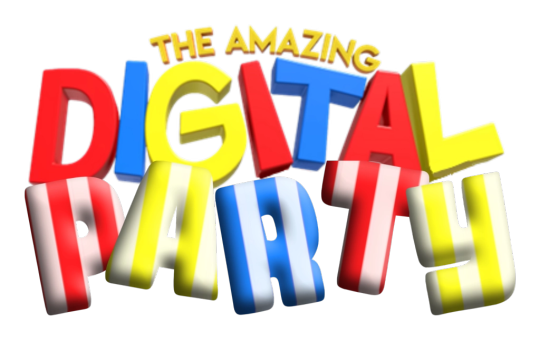
AU Information
Inspired by Mario Party! An Au where a the gang you know and love are trapped digitally in a Party game, jam packed with the most wacky minigames and boards you can think of! Their goal? To obtain the most Stars!
Who will be The Superstar?
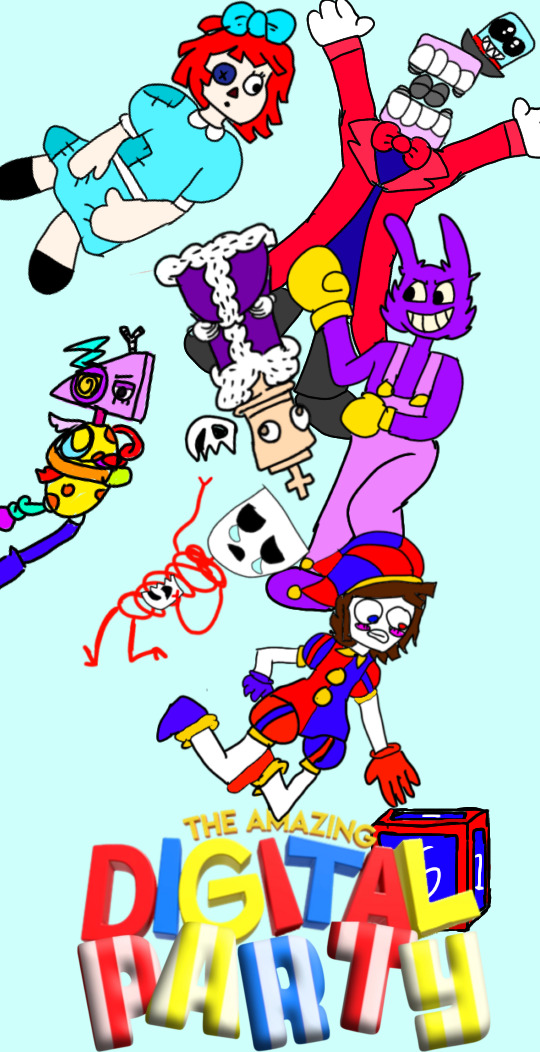
Characters
(EVERYONE IS HERE!!)
Pomni
Kinger
Jax
Gangle
Ragatha
Rhett
Squiggles
Sockette
Queenie
Kaufmo
Cyclo
Dinah
Yucko
Princess Loolilalu
Gummigoo
Max
Boards
Chad
☆☆☆☆☆☆☆
Circus Tent
Candy Canyon Kingdom
Glitched Map
Digital Lake
Game Mechanics
Digital Fairgrounds
☆☆☆☆☆☆☆
Each player(4 total) starts with 10 Caine Coins, their goal is to get a Star, which is 20 Caine Coins.
CC are obtained via Minigames or specific board spaces.
After each player has had their turn, a minigame starts. It is randomly selected via a roulette.
Depending on how they do in a minigame, depends on how much coins they get!
1st: 5CC
2nd: 3CC
3rd: 1CC
4th:0CC
The player with the most stars after 20 rounds is deemed the Superstar!(For that game)
☆☆☆☆☆☆☆
Spaces:
Blue Space(+3CC)
Red Space(-3CC)
Shop Space(Is that..Abel? Buy things from him when you land here. Prices vary on item)
Surprise! Space: A random event happens on the board, it can be good or bad
Gloinks Space!: Encounter with the Gloink Queen...not good. Random Roulette of bad things(Only in the circus boards)
The Fudge Space: LOSE a turn, cuz The Fudge trapped you.(Only in CCK)
Item Space: Get a random item for free!
Caine Space: Caine gives you a random good thing via A ROULETTE.
Verses Space: Go up against another player in a 1v1 Minigame for a chance to steal their coins, items or even stars!
Star Space: Where you can buy a star!
Solo Game Space: Play a solo minigame for a chance to win coins and items!
Blank Space: Nothing happens if you land here.
☆☆☆☆☆☆☆
Game Modes
Battle Royale: 4 Players Free For All
2v2: Four Player Team Battle
Duel: 2 player 1v1
Test For The Best: A solo journey on special versions of the boards
☆☆☆☆☆☆☆
Let's Party!!
#the amazing digital circus#tadc au#the amazing digital circus au#theamazingdigitalcircus#tadc#The Amazing Digital Party#Party au#Tadc party#TADP
9 notes
·
View notes
Text
Her name is Dinah. In the Bible, her life is only hinted at in a brief and violent detour within the more familiar chapters of the Book of Genesis that are about her father, Jacob, and his dozen sons. Told in Dinah's voice, this novel reveals the traditions and turmoils of ancient womanhood—the world of the red tent. It begins with the story of her mothers—Leah, Rachel, Zilpah, and Bilhah—the four wives of Jacob. They love Dinah and give her gifts that sustain her through a hard-working youth, a calling to midwifery, and a new home in a foreign land. Dinah's story reaches out from a remarkable period of early history and creates an intimate connection with the past. Deeply affecting, The Red Tent combines rich storytelling with a valuable achievement in modern fiction: a new view of biblical women's society.
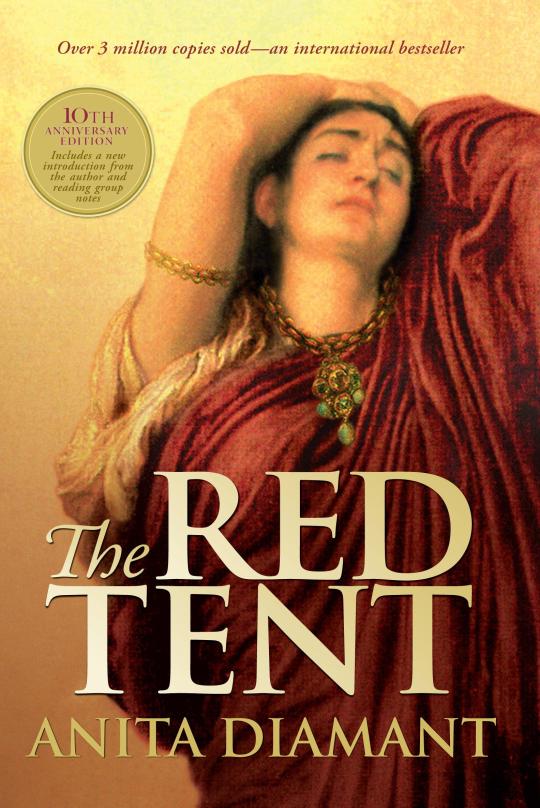
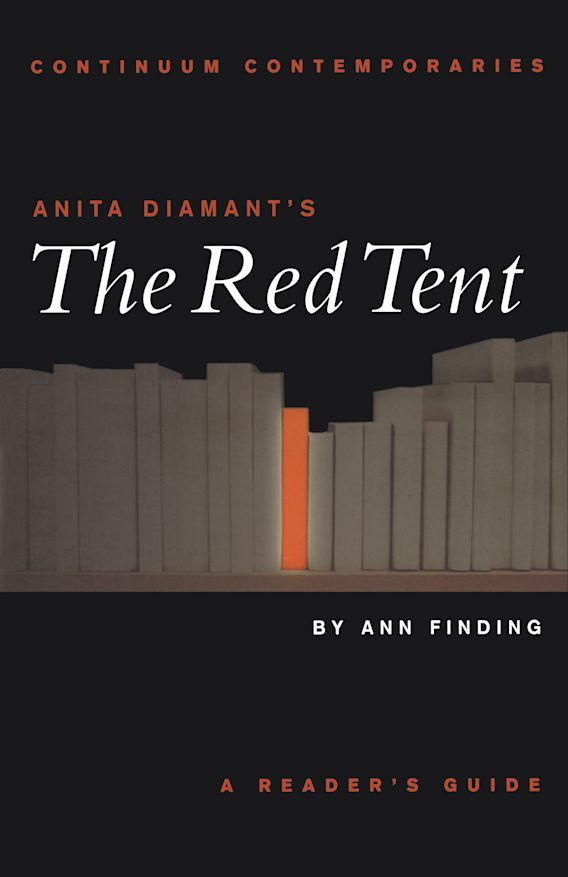
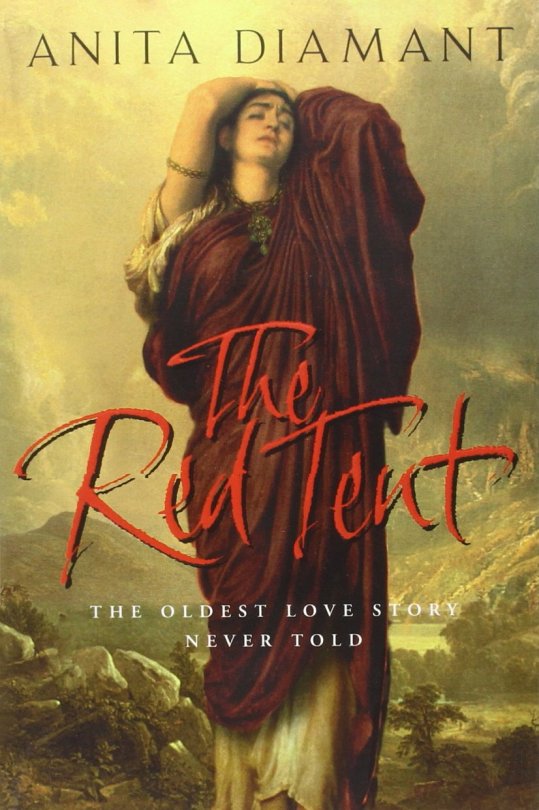
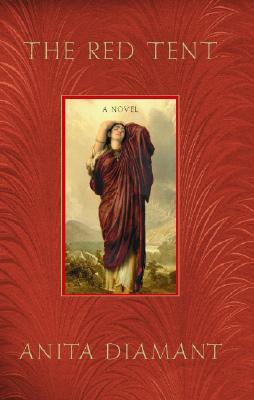
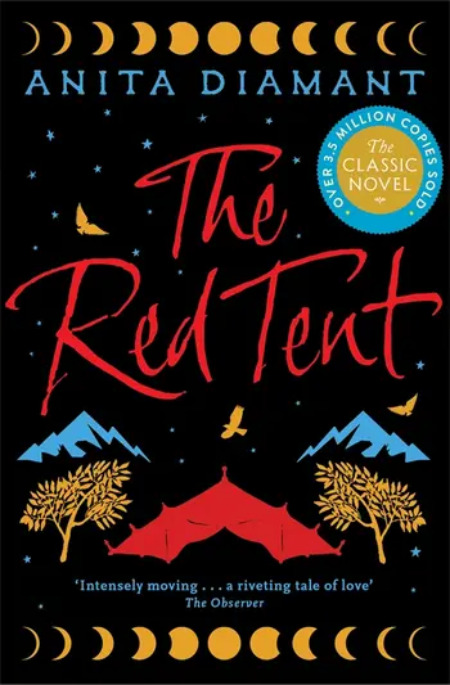
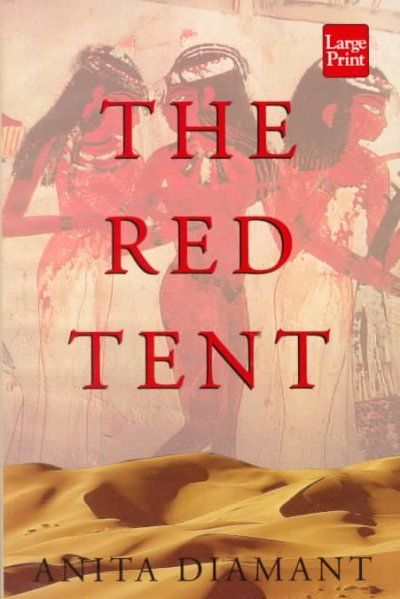
6 notes
·
View notes
Text




Jacob: What would you have me do? They're my sons. Dinah: And I am only a daughter.




marya hawke + inspirations
wikipedia's entry on sin-eater • royal shakespeare company’s 2009 production of hamlet • belle épine (2010) dir. rebecca zlotowski • the beheading of saint dymphna by godfried maes (1688) • the red tent miniseries (2014) • joan of arc's death at the stake by hermann stilke (1843) • the execution of lady jane grey by paul delaroche (1833) • fleabag season 2 episode 4
5 notes
·
View notes
Text
April Reading Recap
so apparently I read a fuckton in April. I put that on the week off for Passover and also a number of very fast reads last month. here goes
The Spite House by Johnny Compton. Might be the best horror book I'd read in a while, and I did not see the twist coming for a long while. Good and very spooky on the whole, but the "creepy kids as ghosts" thing took some of the luster off it. Still, some good and original ideas here and I'll be watching for more books by this author.
The Nine Eyes of Lucien by Madeleine Roux. Not very good writing and a good third of the book was rehashing the events of the end of Campaign 2, which I just watched. It was fine, I guess? But I didn't find it added much.
The Red Tent by Anita Diamant. I've had this one on my list for literal years - it's a retelling of the Biblical story of Dinah, Jacob's one daughter. I kind of wish I'd read it sooner, when (a) I was less burned out on retellings/reinterpretations of familiar stories, and (b) when I would've been less bothered by the flavor of gender essentialism of the text and could have appreciated other things about it without getting stuck in feeling iffy about that. I am trying to work out why it bothers me so much that Diamant chose to change the reading of the text from (an implied) rape to a consensual love affair, and I'm not quite sure I can explain that.
It's an interesting book and I'm glad I read it but I don't think I'd recommend it without disclaimers; I think in some ways it's more interesting as an artifact of the cultural movement it comes out of than anything else. Would analyze in a class about Jewish feminist responses to stories in Tanakh (or Talmud, tbh).
Six Myths of Our Time: Little Angels, Little Monsters, Beautiful Beasts and More by Marina Warner. Fascinating collection of short essays originally given as lectures on the BBC, apparently - the one essay about the way the West conceptualizes the simultaneous purity/monstrosity of children was particularly interesting to me. Interesting piece of work I picked up totally by happenstance because it was short and looked interesting and it lived up to both qualities.
Gallows Hill by Darcy Coates. Good spooky horror recommended by @cigaretteburnslikefairylights and actually legit scared me in places, which doesn't happen all that often to me anymore when I'm reading horror. (I'm still a weenie watching it.) I actually...liked this one start to resolution and am going to be looking up more of Darcy Coates' writing, because if it's not, you know, doing something super ~innovative~ it is good spooky reading and that's really what I've been craving.
Krakatoa: The Day the World Exploded by Simon Winchester. Reading this book was a weird experience. I went into it just thinking "ooh, book about an interesting natural disaster, I love volcanoes" and came out of it going "whoa, surprise Islamophobia," checked the publication date, and learned it was 2003, whereupon I was miserably unsurprised. I don't know why the author felt like he needed to make colonial apologetics and blame the post-eruption upheaval on Islamic fundamentalists manipulating the natives into uprising against their Dutch masters but apparently he did. (I'm exaggerating. But not that much.)
The geology stuff was interesting. Mr. Winchester should've stuck with that and the reportage of the eruption itself and left politics out of it.
Violent Phenomena: 21 Essays on Translation ed. by Kavita Bhanot & Jeremy Tiang. This might be my favorite book I read in April, honestly. It's a really good collection of essays about the concept of decolonizing translation, and what that means, and whether it's possible, and the uneasy and uncomfortable relationship between translation and imperialism. I didn't agree with all the essays in here, and they didn't necessarily all agree with each other, but all of them at least had something interesting to say. I would recommend this one to people who can find it - it's by a small press - who are interested in translation or who frequently read in translation. The writers have a lot to say that I think is worth thinking about.
She Is a Haunting by Trang Thahn Tran. I think I just need to give up reading YA books with the realization they're generally not for me, though this one almost had me. It's something about the...I know there's a range of styles, I can't generalize style across the genre, but there is a texture to YA writing that doesn't quite work for me.
I love the concept - diaspora horror, colonialist horror, some really fucked up body horror stuff that got surprisingly gruesome - and would love to read a slightly different book about it, but alas, that book wasn't this one.
American Midnight: Democracy's Forgotten Crisis, 1917-1921 by Adam Hochschild. Another contender for favorite book I read this month though I think this one loses out to Violent Phenomena and possibly Gallows Hill, though comparing horror fiction to historical nonfiction feels kind of unfair. Anyway, I knew some of what this book was digging into - the Sedition Act and the intensely violent repression that was going on in the United States during World War I - but I learned a lot more here.
The depressing thing about reading this, though, was watching (so to speak) the brutal crushing of a once fairly robust American Socialist Party such that it never recovered. Not to mention the grinding down of the labor movement, which I think was at its most powerful during this period of time and hasn't been as strong since.
Just looking at that and wondering what might've been if Woodrow Wilson wasn't such a fucking dick.
Elektra by Jennifer Saint. I feel so funny about this book. I read another mythology retelling even though I swore not to because a Tumblr user I respect mentioned it being good; my experience was that it wasn't bad and it didn't actively bother me like some other retellings I could name, but I don't know that I'd actually call it good. Mostly I'd say I wasn't annoyed, just uninspired.
Of the three narrators, Elektra was definitely the best, and I really did like the construction of her relationship with Clytemnestra, which really felt like the meat of the book. (Perhaps, considering the House of Atreus, that's a bad turn of phrase to use.) The Cassandra sections felt like a distraction, mostly a way to keep the reader up with what was going on across the sea and provide some action in between the familial drama. Ultimately I just felt like those sections took away from the Elektra/Clytemnestra dynamic, leaving insufficient meat.
Fuzz: When Nature Breaks the Law by Mary Roach. I went through a period of time where I was reading all of Mary Roach's books, and was kind of obsessed with them, so this was sort of returning to an old and familiar friend. I found I wasn't quite as enamored with this one as I remembered being of some of her others (I think I remember Stiff being my favorite), but it was an interesting look at the intersections between human and animal - which is really more what this is about than law, per se. It's about what we do when animals cause problems for humans, from monkeys to bears, and the questions that are raised about the best way to handle those issues.
Nero: Matricide, Music, and Murder in Imperial Rome by Anthony Everitt & Roddy Ashworth. I'm so confused by this book. From the insistence on referring to Nero as "princeps" throughout the book, to the random dropping of French in places it really didn't need to be, to the frankly credulous approach to the sources, particularly when it comes to sex, even when the author mentioned how sex is often a proxy for politics in Roman historical writing, the weird sideways digression into "did Rome have gay marriage?", the weird "maybe she got what she deserved" aside about Messalina's death...
I learned a fair amount, I can say that, I'm not as knowledgeable about this period's Julio-Claudians. Frankly I think Agrippina (the Younger) was the real star of this book, despite Anthony Everitt's heroic efforts to make Nero the protagonist. Buddy, I see your point, but you're pushing a little too hard here.
Anyway. Weird reading experience, I'm tempted to recommend it just so someone else can either validate it or go "what are you talking about, this was a perfectly normal history book."
---
woof long post, but hey it was a lot of books. currently reading A Fever in the Heartland for more American racism in the early 20th century. I have a stack of library books that are waiting for me and I think the next one is probably going to be The Social Lives of Animals, which will either be really enjoyable or annoy the hell out of me, possibly both.
33 notes
·
View notes
Text
trying to tell my femme about the red tent and having to explain who dinah is and then who jacob is and then who isaac is and then who abraham is and then just sending her 50 links from myjewishlearning.com
4 notes
·
View notes
Note
What would you say is an underrated Rebecca performance?
Hi! I think fortunately all her recent performances are critically acclaimed. Even if the film is not that good Rebecca always gives 110% to her role and it's getting noted by critics and by fans.
I think that The Red Tent and Vi are not getting as much attention as her other projects. She was brilliant in both, giving nuences emotional performance and if with Vi I understand it's a mature subject matter and not for everyone plus it's in swedish and not easily available but it's really sad that The Red Tent got no promotion and aired basically without any buzz. It's a good adaptation true to the book and the scene where Dinah accuses Jacob is one of the most powerful scenes Rebecca has ever done, imo.
9 notes
·
View notes
Text
Summer TBR (so far)

A Court of Silver Flames (ACOTAR series) by Sarah J. Maas
Nesta Archeron has always been prickly-proud, swift to anger, and slow to forgive. And ever since being forced into the Cauldron and becoming High Fae against her will, she's struggled to find a place for herself within the strange, deadly world she inhabits. Worse, she can't seem to move past the horrors of the war with Hybern and all she lost in it. The one person who ignites her temper more than any other is Cassian, the battle-scarred warrior whose position in Rhysand and Feyre's Night Court keeps him constantly in Nesta's orbit. But her temper isn't the only thing Cassian ignites. The fire between them is undeniable, and only burns hotter as they are forced into close quarters with each other.
Meanwhile, the treacherous human queens who returned to the Continent during the last war have forged a dangerous new alliance, threatening the fragile peace that has settled over the realms. And the key to halting them might very well rely on Cassian and Nesta facing their haunting pasts. Against the sweeping backdrop of a world seared by war and plagued with uncertainty, Nesta and Cassian battle monsters from within and without as they search for acceptance-and healing-in each other's arms.
House of Earth and Blood (Crescent City series) by Sarah J. Maas
Bryce Quinlan had the perfect life-working hard all day and partying all night-until a demon murdered her closest friends, leaving her bereft, wounded, and alone. When the accused is behind bars but the crimes start up again, Bryce finds herself at the heart of the investigation. She'll do whatever it takes to avenge their deaths.
Hunt Athalar is a notorious Fallen angel, now enslaved to the Archangels he once attempted to overthrow. His brutal skills and incredible strength have been set to one purpose-to assassinate his boss's enemies, no questions asked. But with a demon wreaking havoc in the city, he's offered an irresistible deal: help Bryce find the murderer, and his freedom will be within reach.
As Bryce and Hunt dig deep into Crescent City's underbelly, they discover a dark power that threatens everything and everyone they hold dear, and they find, in each other, a blazing passion-one that could set them both free, if they'd only let it.
Braiding Sweetgrass: Indigenous Wisdom, Scientific Knowledge, and the Teachings of Plants by Robin Wall Kimmerer
As a botanist, Robin Wall Kimmerer has been trained to ask questions of nature with the tools of science. As a member of the Citizen Potawatomi Nation, she embraces the notion that plants and animals are our oldest teachers. In Braiding Sweetgrass, Kimmerer brings these lenses of knowledge together to show that the awakening of a wider ecological consciousness requires the acknowledgment and celebration of our reciprocal relationship with the rest of the living world. For only when we can hear the languages of other beings are we capable of understanding the generosity of the earth, and learning to give our own gifts in return.
The Red Tent by Anita Diamant
Her name is Dinah. In the Bible, her life is only hinted at in a brief and violent detour within the more familiar chapters of the Book of Genesis that are about her father, Jacob, and his dozen sons. Told in Dinah's voice, this novel reveals the traditions and turmoils of ancient womanhood—the world of the red tent. It begins with the story of her mothers—Leah, Rachel, Zilpah, and Bilhah—the four wives of Jacob. They love Dinah and give her gifts that sustain her through a hard-working youth, a calling to midwifery, and a new home in a foreign land. Dinah's story reaches out from a remarkable period of early history and creates an intimate connection with the past. Deeply affecting, The Red Tent combines rich storytelling with a valuable achievement in modern fiction: a new view of biblical women's society.
Orlando by Virginia Woolf
Virginia Woolf's Orlando 'The longest and most charming love letter in literature', playfully constructs the figure of Orlando as the fictional embodiment of Woolf's close friend and lover, Vita Sackville-West. Spanning three centuries, the novel opens as Orlando, a young nobleman in Elizabeth's England, awaits a visit from the Queen and traces his experience with first love as England under James I lies locked in the embrace of the Great Frost. At the midpoint of the novel, Orlando, now an ambassador in Constantinople, awakes to find that he is now a woman, and the novel indulges in farce and irony to consider the roles of women in the 18th and 19th centuries. As the novel ends in 1928, a year consonant with full suffrage for women. Orlando, now a wife and mother, stands poised at the brink of a future that holds new hope and promise for women.
I Know Why the Caged Bird Sings by Maya Angelou
Here is a book as joyous and painful, as mysterious and memorable, as childhood itself. I Know Why the Caged Bird Sings captures the longing of lonely children, the brute insult of bigotry, and the wonder of words that can make the world right. Maya Angelou’s debut memoir is a modern American classic beloved worldwide.
Sent by their mother to live with their devout, self-sufficient grandmother in a small Southern town, Maya and her brother, Bailey, endure the ache of abandonment and the prejudice of the local “powhitetrash.” At eight years old and back at her mother’s side in St. Louis, Maya is attacked by a man many times her age—and has to live with the consequences for a lifetime. Years later, in San Francisco, Maya learns that love for herself, the kindness of others, her own strong spirit, and the ideas of great authors (“I met and fell in love with William Shakespeare”) will allow her to be free instead of imprisoned.
Crying in H Mart by Michelle Zauner
A memoir about growing up Korean American, losing her mother, and forging her own identity.
Michelle Zauner tells of growing up one of the few Asian American kids at her school in Eugene, Oregon; of struggling with her mother’s particular, high expectations of her; of a painful adolescence; of treasured months spent in her grandmother’s tiny apartment in Seoul, where she and her mother would bond, late at night, over heaping plates of food.
As she grew up, moving to the East Coast for college, finding work in the restaurant industry, and performing gigs with her fledgling band—and meeting the man who would become her husband—her Koreanness began to feel ever more distant, even as she found the life she wanted to live. It was her mother’s diagnosis of terminal cancer, when Michelle was twenty-five, that forced a reckoning with her identity and brought her to reclaim the gifts of taste, language, and history her mother had given her.
Cunt: A Declaration of Independence by Inga Muscio
An ancient title of respect for women, the word cunt long ago veered off this noble path. Inga Muscio traces the road from honor to expletive, giving women the motivation and tools to claim cunt as a positive and powerful force in their lives. In this fully revised edition, she explores, with candidness and humor, such traditional feminist issues as birth control, sexuality, jealousy between women, and prostitution with a fresh attitude for a new generation of women. Sending out a call for every woman to be the Cunt lovin Ruler of Her Sexual Universe, Muscio stands convention on its head by embracing all things cunt-related.
Women Who Run with the Wolves: Myths and Stories of the Wild Woman Archetype by Clarissa Pinkola Estés
"Within every woman there is a wild and natural creature, a powerful force, filled with good instincts, passionate creativity, and ageless knowing. Her name is Wild Woman, but she is an endangered species. Though the gifts of wildish nature come to us at birth, society's attempt to 'civilize' us into rigid roles has plundered this treasure, and muffled deep, life-giving messages of our own souls. Without Wild Woman, we become overdomesticated, fearful, uncreative, trapped."
In her now-classic book that spent 144 weeks on the New York Times hardcover bestseller list, and is translated into 35 languages, Clarissa Pinkola Estés, Ph.D., shows how woman's vitality can be restored through what she calls "psychic archaeological digs" into the ruins of the female unconscious. Dr. Estés uses her families' ethnic tales, washed and rinsed in the blood of wars and survival, multicultural myths, her own lyric writing of those fairy tales, folk tales, and stories chosen from her life witness, and also research ongoing for twenty years… that help women reconnect with the healthy, instinctual, visionary attributes of the Wild Woman archetype.
Glenstone Field Guide 02 Edited by Emily Wei Rales and Fanna Gebreyesus
This Field Guide intends to serve as a lighthearted, by no means exhaustive primer for the curious Glenstone visitor. Structured as an illustrated index, it is divided into three sections: art, architecture, and landscape. Each section includes related terms and entries written by Glenstone staff and collaborators. Collectively, these voices share the multiple ideas, histories, anecdotes, and facts that make up the Glenstone story, and offer a glimpse into what can be seen onsite. Integrated throughout are statements from founders Emily Wei Rales and Mitchell P. Rales that highlight the key principles of community, sustainability, design, integration, and direct engagement, which guide Glenstone’s mission. Glenstone exists for you, our visitor, and we hope you will explore, engage, enjoy, and return often. You are always welcome.
#books#tbr#summer tbr#a court of silver flames#acosf#crecent city#sarah j maas#house of earth and blood#braiding sweetgrass#the red tent#orlando#i know why the caged bird sings#inga muscio#clarissa pinkola estes#women who run with the wolves#maya angelou#glenstone#crying in hmart#booklr
9 notes
·
View notes
Text
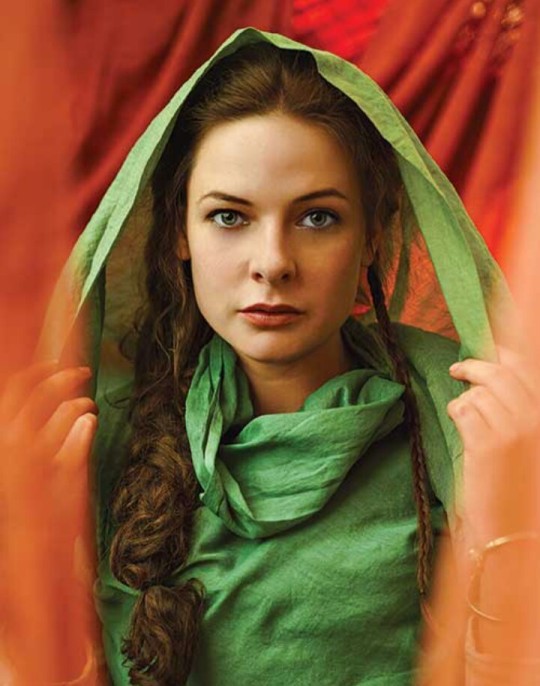


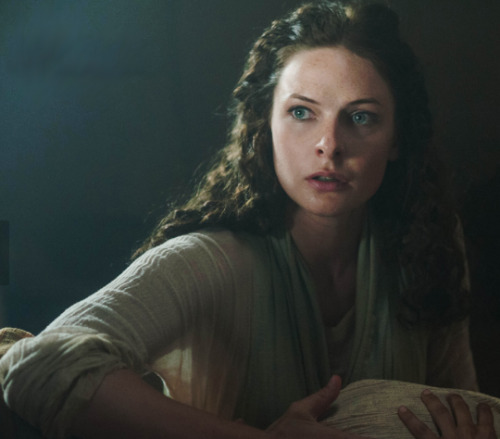

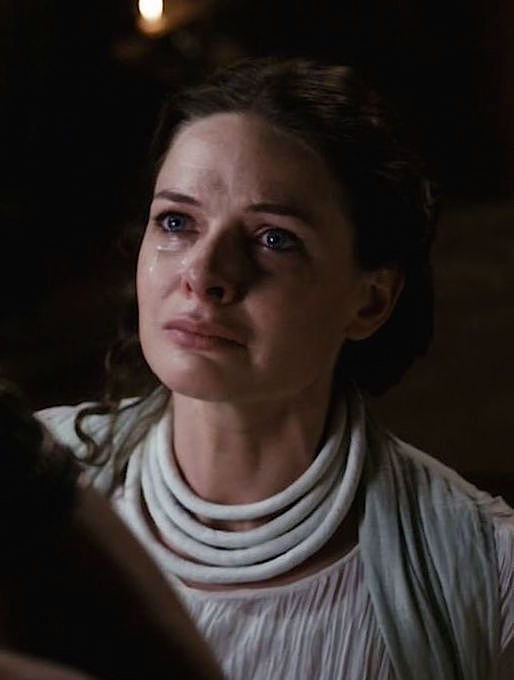


Rebecca Ferguson as Dinah | 'The Red Tent' | 2014
62 notes
·
View notes
Text
I'm religious and have many conservative leanings. But it doesn't mean that I can't see where religions get things badly wrong. And they do.
Here's one of them. I don't know where people have got this idea of menstruation being a punishment for original sin from.
Because in Genesis, Eve is told that she will give birth in pain. No mention of menstruation, unless I've read it wrong.
Even there. I have my doubts that this is how we're supposed to understand ourselves.
I can appreciate talk about the need for hygiene during menstruation. The bottom line is that menstrual blood is a waste product. Not only blood but the lining of the womb comes away.
If we left this waste just lying about, we'd have a biohazard in no time.
But the idea of it as a moral stain. No. I don't believe that for a moment.
I've heard Orthodox Jewish married women talking about their monthly Mikvah Ritual.
I don't entirely 'get' the reasons for ritual impurity during menstruation. But I do understand that it's not a moral judgement on the woman.
If I've got this right, isn't it a matter of the blood flow, and also the fact that a new life hasn't been created? (Perhaps a Jewish lady could please clarify?)
From the ladies I've heard talking about it. The Menstruation Period is a quiet time, emotional connection with their husbands, rather than physical.
The Mikvah bathing ritual is a precious time of renewal for the woman, followed by physical reunion with her husband.
No intimation of punishment that I can see there.
Jewish author Anita Diamant gives an insight in her novel The Red Tent that has made a great impression on me.
I don't have the actual quotation to hand, but I can convey the gist of it.
The Red Tent is the women only sanctuary for Jacob's wives and his only daughter Dinah.
They go there every month while they menstruate, and it's also the place where childbirth takes place.
Here the women talk openly about the religion of their mothers. They teach young Dinah about how menstruation, pregnancy and childbirth are women's sacred gift of a Role in Creation.
The pain and blood involved are merely the price of that gift.
Having read that. There's no way I can take the idea of it being a punishment seriously.
"menstruation is punishment for original sin" is a fairly common doctrine (altho in my experience it's usually more implicit than just baldly stated like that)
anyway this implies that of all the animal kingdom, humans are not UNIQUE in sinning, but are joined by bats, the elephant shrew, and the spiny mouse species Acomys cahirinus. (according to my 5 seconds on wikipedia at least)
64K notes
·
View notes
Text
Diamant
You're probably thinking, wow, she finished a D already?!
No, sure didn't. Cause I'm not going to read it at all.
I tried The Red Tent, by Anita Diamant. It's about Dinah, who is mentioned in the Bible (Genesis) only briefly. I like to learn more about obscure Bible people when possible, so I thought I'd check it out.
I made it exactly two pages into Chapter 1 before I gave up. I'm a big believer in creative license -- in my opinion, that's what makes some of the best stories as great as they are. But I don't like it when people change the truth, especially not about stories in the Bible. Creative license applied to the Bible should fill in the gaps, but not change the facts to create a new story completely. Ergo, this is going straight back to the library.
0 notes